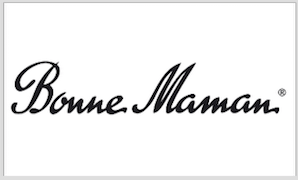Muslim weddings enjoin a woman and a man together as a married couple who plan on spending the rest of their lives together. Teachings of the Prophet Mohammad show that weddings need to be kept simple, yet in many Islamic cultures they can sometimes be very lavish and expensive ceremonies.
Read MoreIdeas for Muslim Wedding Gifts
Wednesday, October 7, 2009 5:00:19 PM Asia/Singapore
Muslim weddings often reflect the personal beliefs of the couples and their families. Due to cultural differences in various countries throughout the world, no two Muslim weddings are alike. As with all weddings though, it is customary for the guests to give the bride and groom gifts. If you’ve been invited to a Muslim wedding, then you may be wondering what kind of gift the bride and groom would like.
Read MoreIndonesian Wedding Tradition
Wednesday, September 23, 2009 4:56:47 PM Asia/Singapore
An Indonesian wedding is a very important occasion. The bride and groom will send an invitation to anyone that they are acquainted with, which usually means there could be hundreds or even thousands of guests. While the majority of invited acquaintances won’t show up, the wedding will still probably be quite large. If you’ve been invited to an Indonesian wedding, you should at least make an appearance, even if it is only for a few minutes. Pay your respects to the newlyweds, and let them know how happy you are for them.
Read MoreChoosing Your Wedding Favors
Wednesday, September 9, 2009 4:51:50 PM Asia/Singapore
Wedding plans take a lot of hard work, and if you’re not organized, you may feel lost. There are many things, such as wedding favors, that make up a wedding day. If you have no idea what kind of wedding favors to give your guests, then hopefully this guide will help you with narrowing down your choices.
Read MoreTraditional Japanese Weddings
Wednesday, August 26, 2009 4:37:00 PM Asia/Singapore
Traditional Japanese weddings take place in a Shinto shrine. The main religion of the Japanese people is Shinto, which means the way of Kami (God). Traditional Shinto wedding ceremonies are attended by only the couple’s closest friends and relatives. They are very intimate events. The bride’s wedding dress is a traditional white kimono called a shiro-moku. These two words mean “white” and “nature”. Her hair is adorned with accessories and ornaments. The groom also wears a traditional kimono as well as pleated hakama pants. These are worn underneath a short overcoat adorned with his family crest.
Read More








